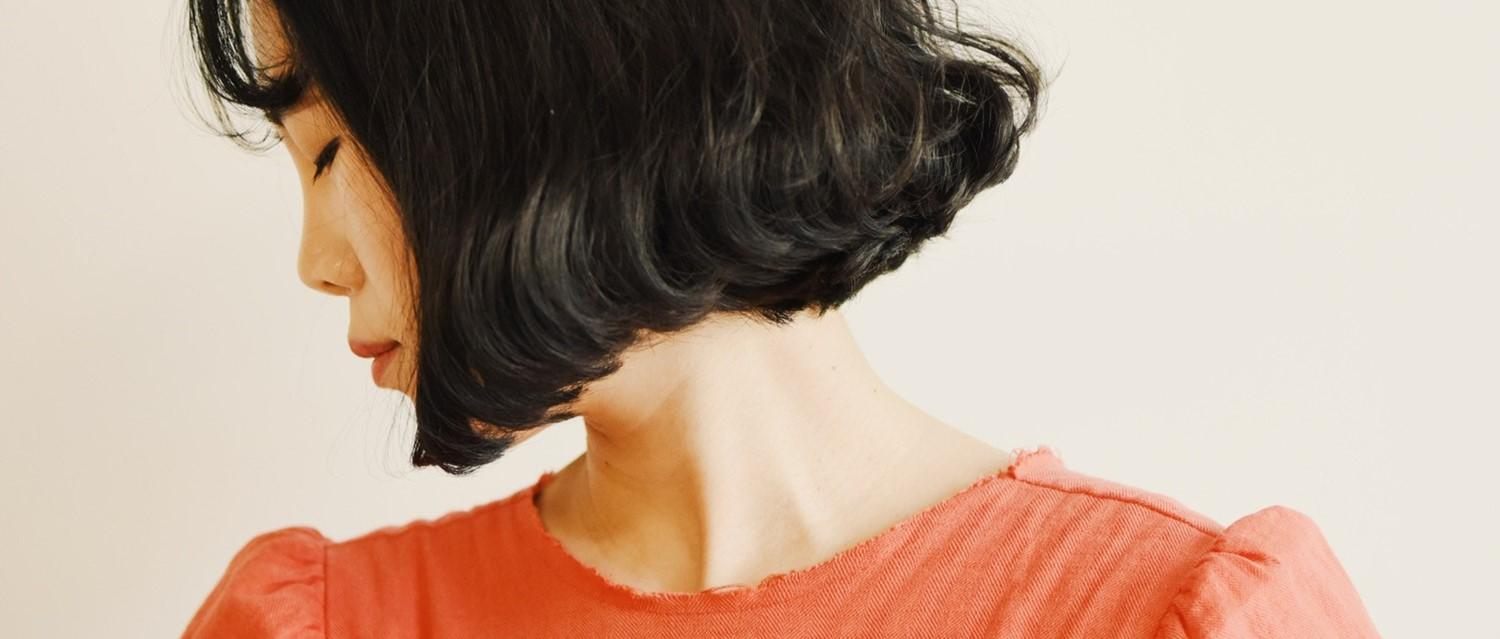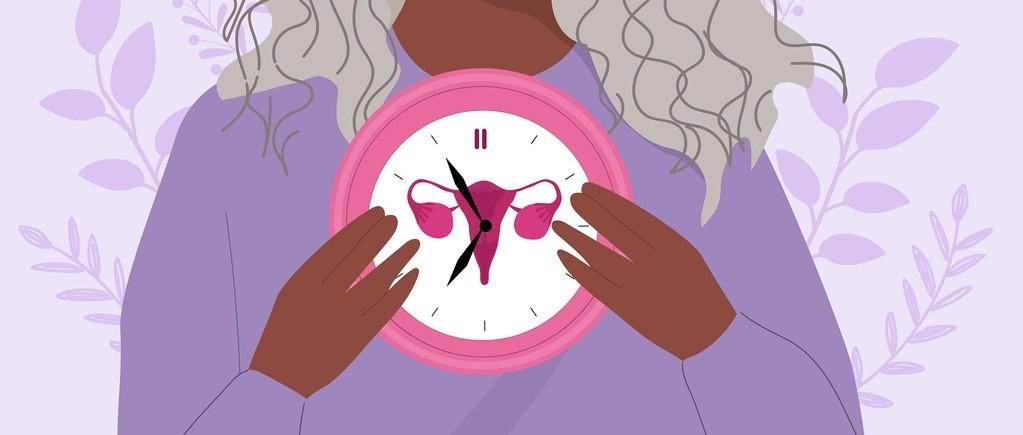
Does the menopause cause hair loss?
Peer reviewed by Dr Sarah Jarvis MBE, FRCGPLast updated by Natalie HealeyLast updated 30 Jan 2019
- HerunterladenHerunterladen
- Teilen Sie
Teilen Sie
We all know the most common symptoms associated with the menopause such as hot flushes, but not everyone realises it can affect hair too. For many women, hair is intrinsically linked to self-esteem. So how do you get through this time with your crowning glory intact?
In diesem Artikel:
GP Dr Aarti Narayan Denning, who specialises in cosmetic medicine, points out that hair loss during the menopause and perimenopause is more common than you might think.
"Most women experience overall hair thinning rather than noticeable bald spots. The thinning can occur on the front, sides, or top of the head. Hair may also fall out in large clumps during brushing and showering," she points out.
"It's estimated that around 70% of women over the age of 70 experience hair loss," she adds.
Nevertheless, such a change in your appearance can be understandably distressing.
Lesen Sie unten weiter
Why menopause affects your hair
Why might the menopause affect your hair? The answer, of course, is hormones. Lack of oestrogen could lead to a lacklustre mane.
"Hair loss during menopause is the result of lowered production of oestrogen and progesterone. These hormones help hair grow faster and stay on the head for longer periods of time. When the levels of oestrogen and progesterone drop, hair grows more slowly and becomes much thinner," Denning explains.
Patientenauswahlen für Menopause und HRT

Gesundheit von Frauen
Welchen Einfluss hat die Ethnie auf die Behandlung der Menopause?
Jüngsten Forschungsergebnissen zufolge könnte Ihre ethnische Zugehörigkeit Ihre Erfahrungen mit den Wechseljahren beeinflussen. Wir erforschen die Beziehung zwischen Menopause und Ethnie und wie rassistische Vorurteile bei der Behandlung von Frauen eine Rolle spielen können.
von Ellie Broughton

Gesundheit von Frauen
Perimenopause
Als Perimenopause bezeichnet man die Übergangsphase vor der Menopause. Sie beginnt in der Regel einige Jahre vor der Menopause, wobei die genaue Dauer von Frau zu Frau variieren kann. Während der Perimenopause kommt es im Körper der Frau zu hormonellen Veränderungen, da die Eierstöcke weniger Östrogen produzieren. Zu den Symptomen gehören Hitzewallungen, nächtliches Schwitzen, Stimmungsschwankungen, Scheidentrockenheit und Veränderungen der Libido.
von Dr. Hayley Willacy, FRCGP
Die psychologischen Auswirkungen
The majority of us can relate to the lack of confidence associated with a 'bad hair day'. And many women find that menopause-associated hair loss damages their confidence.
"We live in an age of easy image sharing and broadcasting, with the side-effect that our appearance is exposed to judgement. Even though hair loss is not life-threatening and considered cosmetic in many cases, the effects on patients' quality of life are real," says Denning.
And the research backs this up. While both men and women are affected by hair loss, the impact may be more devastating in women, sometimes leading to social self-exclusion and severe depression.
Lesen Sie unten weiter
Behandlungsmöglichkeiten
But if you've become unhappy with your hair since the menopause, you're not alone. More comforting still, there's plenty that can be done.
Denning advises that you speak with your GP early - as soon as you notice a change in your hair - so that a possible cause can be identified. You might have a nutritional deficiency, for instance, that can easily be remedied with the right supplement.
She explains that your doctor will want to take a full medical history.
"I look at a woman's stress levels, changes in hormone treatment, chronic illness, life stage changes. And of course, examining the hair to look for any physical changes."
Your GP might call for some blood tests, to check for healthy levels of iron and various vitamins, along with your thyroid and other hormones.
If the blood tests come back normal, hair loss treatment minoxidil is sometimes prescribed, which many women find helpful - although this is highly unlikely to be available on the NHS. But don't rule out non-medical intervention, says Denning. Never underestimate how much your hair will thank you for avoiding aggressive styling, irritating chemicals and heat treatments. "Sometimes the simplest approach is the best."
What about HRT?
If hair changes during the menopause are associated with other uncomfortable symptoms such as skin changes, hot flushes, and mood swings, hormone replacement therapy (HRT) may be worth looking into. But always ask your GP whether it's appropriate for you.
"We need to take into consideration the many different factors affecting hair growth, hair fall and hair distribution first," cautions Denning. "But the good news is that when hair loss is part of normal hormonal changes and ageing, it is treatable."
However, it's important to bear in mind that the risks and benefits of HRT must be carefully assessed before planning treatment.
Artikel Geschichte
Die Informationen auf dieser Seite wurden von qualifizierten Klinikern geprüft.
30 Jan 2019 | Latest version

Fragen, teilen, verbinden.
Stöbern Sie in Diskussionen, stellen Sie Fragen, und tauschen Sie Erfahrungen zu Hunderten von Gesundheitsthemen aus.

Fühlen Sie sich unwohl?
Beurteilen Sie Ihre Symptome online und kostenlos